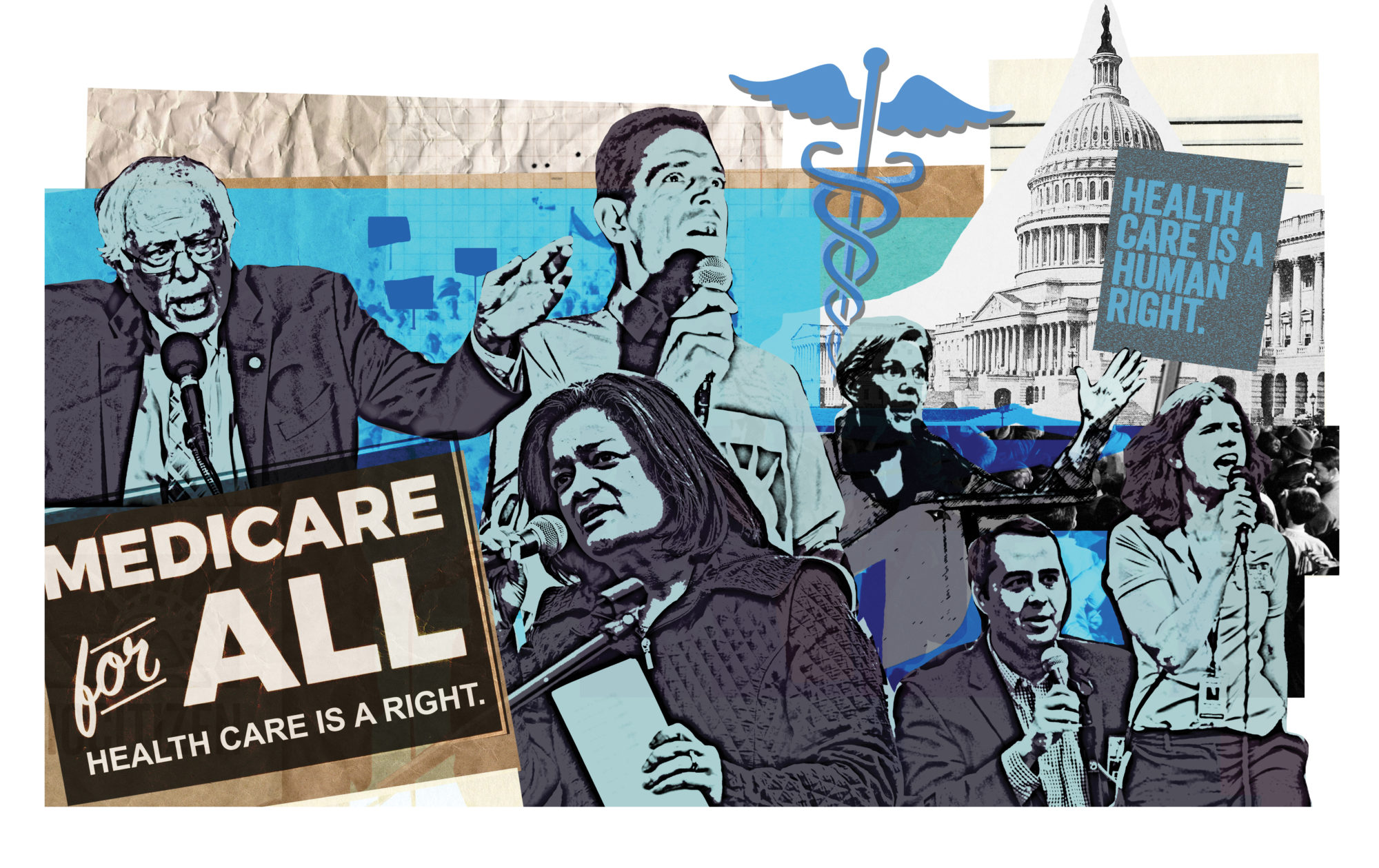Frontline Coronavirus Doctors, Patients, Business and Labor Leaders Describe How Corporate Health Care Has Failed Them
‘I Hoped Insurers Wouldn’t Be So Ruthless as To Bankrupt These Patients’

WASHINGTON, D.C. – The coronavirus pandemic has shown how the for-profit U.S. health care system has failed Americans, workers and businesses and has exacerbated racial disparities in health care, an all-female panel of coronavirus and uninsured patients, frontline physicians and business and labor leaders said today. Videos from the participants and others are available here.
In a telepresser led by U.S. Rep. Pramila Jayapal (D-Wash.) marking the 55th anniversary of Medicare, speakers shared their personal stories of how they, their patients, employees and communities of color have been harmed by the privatized health care system amid the worst pandemic in a century.
“This current public health and economic crisis is screaming: we must stop tying health care to employment,” said Jayapal, a co-sponsor of pending Medicare for All legislation. “There will be no greater tribute to those who fought for the inception of Medicare 55 years ago than to finally pass Medicare for All. The COVID-19 pandemic makes our case loud and clear, in every one of the more than 151,000 lives lost, in every test and hospital bill that threatens to bankrupt people and families already reeling from an economy where 50 million workers have filed for unemployment.”
“As I first encountered the flow of sick patients coming into the emergency room, I hoped that either all these patients’ care would be covered or that insurers and hospitals wouldn’t be so ruthless as to bankrupt these patients. But these naïve sentiments have no place in this broken, profit driven system,” said Dr. Anna Stratis, a family physician who worked at Woodhull Hospital Brooklyn, N.Y. during the height of the pandemic. “When I was working there was an N-95 mask shortage and I saw the fear in my colleagues’ eyes of getting infected and infecting their loved ones.”
Jen Kimmich, owner of Alchemist Brewery in Stowe, Vt., had to lay off employees due to the economic downturn, and spoke about the burden of employee health insurance costs. “The private health care system has tremendously hurt small businesses like mine,” she said. “If we had Medicare For All, my husband and I would be able to focus on the financial recovery of our business without the burden of navigating the increasingly expensive health care market for our employees and their families. If you claim to support small businesses, you should be supporting Medicare for All.”
“People of color are more likely to suffer from chronic diseases which leaves them more vulnerable to the coronavirus and housing in high poverty neighborhoods make social distancing near impossible,” said Dr. Susan Rogers, president-elect of Physicians for a National Health Program (PNHP) and a retired Chicago-based doctor. “Access to health care has to be available to everyone if we want to stop this pandemic and Medicare for All is the only plan that will do that.”
Ada Briceño, co-president of UNITEHERE Local 11, which represents 20,000 hotel and hospitality workers in southern California, said “Health insurance should never be tied to employment status – period. About 90% of our union members have lost their jobs due to the pandemic and may soon lose their health insurance – as millions of other Americans already have. Medicare for All is the fix to this problem and would better position unions like ours by taking costly health benefit negotiations off the bargaining table and allowing us more resources to focus on fight for fair wages, retirement and other essential benefits.”
The telepresser was hosted by Public Citizen, Physicians for a National Health Program, Business Leaders for Health Care Transformation, Labor Campaign for Single Payer and Healthcare-NOW.
Videos of other attendees describing their experiences are available here.